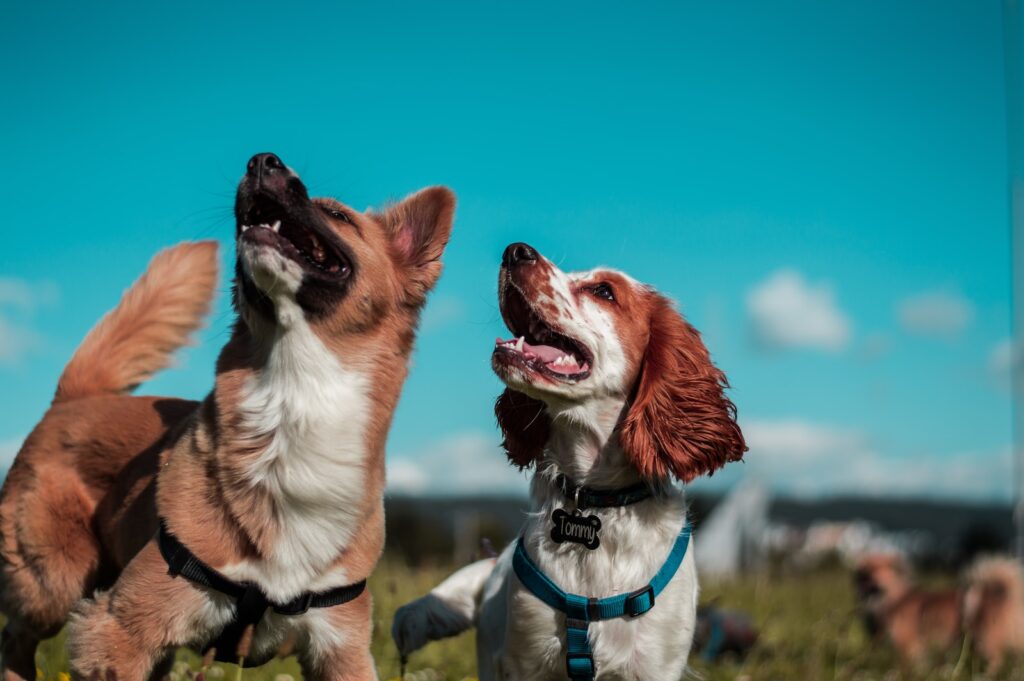Can Dogs Eat Capers? — Yes, They can
Capers are safe for dogs to consume in moderation. However, it is important to keep in mind a few considerations before incorporating capers into your dog’s diet. While capers are not toxic to dogs, they are high in sodium and may cause digestive upset if consumed in large quantities. It is crucial to serve capers as an occasional treat and not as a regular part of their diet.
Can Puppies Eat Capers?
It is not recommended to feed capers to puppies. Puppies have delicate digestive systems, and the high sodium content in capers can be overwhelming for their tiny bodies. It is best to wait until your puppy is older and their digestive system is more developed before introducing capers to their diet. Always consult with your veterinarian before introducing any new food to your puppy.
Things to consider when feeding capers to puppies?
When considering feeding capers to puppies, it is important to take into account their age, size, and overall health. Puppies have different nutritional needs compared to adult dogs, and their systems are still developing. As such, it is essential to prioritize their well-being and only introduce foods that are safe and beneficial for them. Consult with your veterinarian for appropriate dietary recommendations for your puppy.
Nutritional Benefits of Capers for Dogs — Why Capers are Good for Dogs?
Sodium Benefits
Capers provide a small amount of sodium, which is an essential mineral for dogs. Sodium helps maintain proper nerve and muscle function, as well as regulating the balance of fluids in the body. However, due to the high sodium content in capers, it is necessary to offer them in moderation to prevent sodium overload.
Antioxidant Properties
Capers contain antioxidants that help protect against free radicals in the body. These antioxidants can promote overall health and support the immune system. Including capers in your dog’s diet, in appropriate portions, may contribute to their overall well-being.
Flavorful Addition
Capers have a strong flavor that can enhance the taste of certain dishes. Adding a small amount of capers to your dog’s food as a treat can provide a flavorful experience for them. However, it is crucial to ensure that the other ingredients in the dish are safe for dogs and do not contain any harmful substances.
Potential Allergies: Can Dogs Be Allergic to Capers?
While capers are not commonly known to cause allergies in dogs, it is still possible for individual dogs to have an adverse reaction. Allergic reactions can vary from mild to severe, and it is important to monitor your dog for any signs of an allergic response after consuming capers. If you notice any unusual symptoms, such as itching, vomiting, or diarrhea, discontinue feeding capers and consult with your veterinarian.
Symptoms of Capers Allergies in Dogs
- Itching and Skin Irritation: Dogs with caper allergies may experience itching, redness, or inflammation on their skin. They may scratch or lick excessively in an attempt to ease the discomfort.
- Gastrointestinal Distress: Some dogs may develop digestive issues after consuming capers, such as vomiting or diarrhea. These symptoms may be indicators of an allergic reaction or sensitivity to capers.
- Respiratory Problems: In rare cases, dogs with severe caper allergies may exhibit respiratory symptoms, such as coughing, sneezing, or difficulty breathing. These symptoms require immediate veterinary attention.
What to Do If Your Dog Shows Symptoms?
- Discontinue Feeding Capers: If you suspect that your dog is having an allergic reaction to capers, stop feeding them capers immediately.
- Monitor Their Condition: Keep a close eye on your dog and observe any changes in their behavior or symptoms. If the symptoms worsen or persist, seek veterinary assistance.
- Consult With Your Veterinarian: Inform your veterinarian about the situation and provide details regarding the symptoms your dog is experiencing. They will be able to provide guidance and recommend further steps to take.
Recommended Amount: How Much Capers Can a Dog Consume?
Capers should only be given to dogs in small quantities. As a general guideline, limit caper consumption to no more than one or two capers per serving, depending on the dog’s size and individual tolerance. Avoid serving capers as a standalone treat and instead incorporate them into a balanced diet alongside other dog-friendly foods.
Things to Consider When Feeding Capers to Dogs
When feeding capers to dogs, it is essential to consider their overall diet and any specific health conditions they may have. Capers should be viewed as an occasional treat and not a staple food. Always introduce new foods gradually and in small amounts to monitor your dog’s reaction and ensure they tolerate it well. If you have any concerns or questions, consult with your veterinarian for personalized advice.
How to Feed Capers to Dogs: A Quick Guide
If you decide to introduce capers into your dog’s diet, here are three simple recipes that incorporate capers:
Salmon and Caper Delight
Mix cooked, boneless salmon with a small amount of capers and serve it as a meal to your dog. Ensure the salmon is free from seasonings, such as salt or spices, that may be harmful to dogs.
Caper Topped Chicken
Cook a plain, boneless chicken breast and top it with a few capers for added flavor. Cut the chicken into small, bite-sized pieces for easy consumption.
Caper-infused Vegetable Mix
Mix cooked, dog-friendly vegetables like green beans, carrots, and peas with a teaspoon of capers. This veggie mix can be served as a side dish alongside your dog’s regular food.
Conclusion
Capers can be safe for dogs when served in moderation. While they provide some nutritional benefits and can be a flavorful addition to meals, it is essential to be mindful of the high sodium content and potential allergies. Always consult with your veterinarian before introducing any new food to your dog’s diet, including capers. Remember, a balanced and appropriate diet is key to keeping your furry friend happy and healthy.


